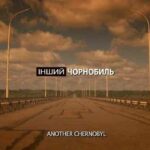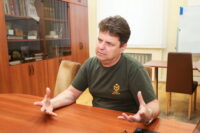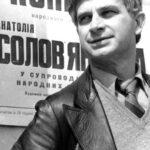
(film review)
“Manuscripts do not burn.”
― Mikhail Bulgakov, The Master and Margarita
Today, I would like to present to your attention a film review of Vladimir Bortko’s TV series based on Mikhail Bulgakov’s novel of the same name ‘The Master and Margarita.’
The film adaptation of a literary work is a responsible business, and the filming of a bestseller is even more painful. In this case, the degree of risk of not pleasing the viewer increases greatly. When staging the film ‘Master and Margarita,’ the film director Vladimir Bortko chose for himself the tactics of the original source following, reserving the right to make small adjustments. On the one hand, the viewers should be pleased with such an approach and careful attitude to the novel, which has become a cult masterpiece, on the other hand, such a verbatim adaptation can be frustrating mechanical retelling.
The first thing that the reader’s perception usually argues with is the mismatch between roles and actors. And first of all, it could concern the performer of the role of Woland, Oleg Basilashvili. But as soon as the Prince of Darkness’s dialogue with the writers begins, it immediately becomes clear that the actor has been selected for the role as best he can. We see before us a real Messire, descended from the pages of the book. The image turned out to be monumental, majestic and mysterious. Despite the fact that outwardly the actor is not quite like Woland, whose portrait is described in detail by M. Bulgakov in the novel, he has one advantage – his voice. Low, as if coming from the depths, it perfectly complements the image. Thus, the screen Woland, in my opinion, immediately wins the audience’s sympathy.
The next very significant character in the novel Yeshua is played by Sergei Bezrukov. It seems to me that this is exactly the character to whom recognition comes gradually. The actor does not fit the role of a wandering philosopher, even because he does not look like and is too fat for a tramp. But there is no denying the obvious, Sergei Bezrukov, being almost all the screen time in a static state, using the intonation of the voice and expressive play of the eyes, was able to best convey his character.
Pontius Pilate performed by Kirill Lavrov, although not a mirror image of the book’s procurator, is very appropriate emotionally. The scene of the interrogation of Ha-Notsri and the conversation with Caiaphas confirm this.
The distribution of roles in the series can be perceived in two ways, on the one hand, the actors are not very similar to their prototypes, and on the other – allows you to rediscover familiar characters and get sympathy for those who previously, when read, irritated. For me, this was the image of Koroviev – Bassoon, as much as he was unpleasant and annoying in the book, just as charming and more understandable in the performance of Alexander Abdulov.
I really liked the episode in which Levi Matvey, played by Semyon Strugachev, curses God. This scene and, accordingly, the image in my opinion are some of the best in the film. The actor did very well with the role, which speaks of his acting skills.
As for the main actors, it will be appropriate to write about the similarity of Alexander Galibin with the Master, as well as the external similarity of Anna Kovalchuk with Margarita. The chosen type best suits the book image.
But in my opinion, the director did not succeed in the first meeting between the Master and Margarita. Looking at them, you will never think in your life that “love jumped out in front of them, like a murderer jumps out of the ground in an alley, and struck them both at once.” The “disgusting, disturbing yellow flowers” flew sadly on the pavement, thrown away by the indifferent Margarita, and in her eyes there was no loneliness that so struck the Master.
Her eyes in the film convey only two states, one – where she was killed by grief, and the other, when she, turning into a witch, wide-eyed, rushes on a broom. Thus, one of the strongest emotional moments remained behind the scenes of the film.
The only thing that saves the scene of the meeting of the Master and Margarita from complete failure is the director’s vision. Their meeting takes place on a deserted street, where there is no one who could stop them from seeing each other. This is a very interesting director’s reception. Thus the theme of love – not only all-consuming, as in the novel, but even ordinary – is only indicated.
One of the advantages of the series is its color scheme. City scenes are made in the style of the documentary genre, and the range of colors for them is selected appropriate, black and white, which allows you to make transitions directly from the newsreel to the frame of the film itself. Yershalaim is presented mainly in yellow-purple and red-white tones, thus emphasizing his direct attitude to Rome, and Woland’s magic, breaking into the monochrome world of Moscow citizens, playing on contrasts, warms the imagination, which soon turns out to be cruelly deceived.
Strange, in my opinion, is the director’s decision about the registration of Satan’s score. It is characterized by poor atmosphere and gloomy interior. The predominance of steel color gives the impression of an enclosed space, as if someone’s family crypt was chosen as the place for the ball. In M. Bulgakov, on the contrary, the space for holding the ball was as if “spread.” Luxury wished to stay away, allowing guests to be satisfied with the colorlessness of the festival. What should amaze with brilliance and splendor, strikes on the spot with its ugliness, instead of royal chic, elegance and splendor of decoration, the viewer sees the black and white decoration of the hall and admires the dimly shimmering ladies.
Saving Woland’s money is not to his face and the words and words “I admire” sound out of place and false. The only thing that saves the situation is the musical accompaniment of the score.
The first thing we hear when we start watching each new series is the roar of thunderous music. Music seems to combine two opposite principles, demonic and divine, it disturbs, creating a feeling of touching some unfamiliar phenomena. The musical design very accurately conveys the mood and creates the appropriate atmosphere. In my opinion, the composer Igor Kornelyuk coped very well with the task assigned to him.
‘The Master and Margarita’ is the most mysterious novel of M.Bukgakov, thanks to which you can fall in love with his style of magic realism writing. As a result, the series may be quite ambiguous. It is nothing more than a screen illustration of a famous work, quite lifeless and soulless. At the same time, the picture draws attention to the immortal novel, which fully justifies its existence. The inaccessibility of M. Bulgakov against the background of the film became even more obvious. My rating is 9/10.
























































Залишити відповідь